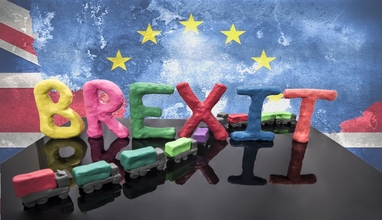Influencer Marketing and the Law: Disclosure and Transparency Rules in France

Influencer marketing has become an essential tool in modern advertising strategies. Every day, millions of French consumers interact with promotional content shared by creators on platforms like Instagram, TikTok, YouTube, and Twitch. With this growing influence comes a legal imperative to regulate practices, protect consumers, and ensure transparency in commercial relationships. In France, several legal frameworks apply to influencers, ranging from the ethical guidelines set by the ARPP to advertising laws and tax obligations. This article explores the legal structure that governs influencer marketing in France and the responsibilities it imposes on content creators and brands alike.
The ARPP: A Key Regulator of Advertising Ethics
The Autorité de Régulation Professionnelle de la Publicité, or ARPP, plays a central role in promoting ethical advertising in France. While it is not a government authority, its recommendations are highly respected within the industry. The ARPP insists on the clear and immediate identification of sponsored content. When an influencer receives any form of compensation—whether monetary or material—they are required to inform their audience transparently. This must be done explicitly and at the very beginning of the content. A vague hashtag hidden at the end of a caption is not enough. The commercial nature of the post must be obvious and understandable from the outset. The ARPP recommends phrases such as “in partnership with,” “sponsored by,” or simply “advertisement,” which leave no ambiguity about the content’s purpose.
These standards become even more critical when the audience includes minors. Children are considered a vulnerable demographic and are particularly susceptible to marketing influence. When content is targeted at a younger audience, influencers are expected to exercise even greater caution and avoid blending promotional messages with personal opinions or entertainment content. The ARPP works closely with French public authorities, notably the Directorate-General for Competition, Consumer Affairs and Fraud Control (DGCCRF), which is empowered to investigate and sanction violations of these transparency rules.
A Strong Legal Framework for Sponsored Content
Beyond the ethical guidelines provided by the ARPP, French law imposes strict obligations on influencers and the brands that partner with them. Under the French Consumer Code, any commercial collaboration must be clearly disclosed to the audience. Failing to do so constitutes misleading commercial practice and may result in criminal penalties. The obligation to disclose applies across all formats, whether it’s a photo, a video, a livestream, or a short clip. The platform used—be it Instagram, YouTube, TikTok, or Twitch—does not change the legal requirements. If compensation or gifts are involved, disclosure is mandatory.
Sanctions for non-compliance are significant. An influencer who fails to identify sponsored content risks up to two years in prison and a fine of up to 300,000 euros. To strengthen this regulatory environment, France passed a specific law in March 2023 aimed at regulating influencer practices on social media. This legislation requires a written contract for any paid collaboration between an influencer and a brand. The contract must detail the terms of the agreement, including how the content will be shared, what transparency measures will be taken, and how the influencer will be compensated. This framework helps protect both parties and clarifies their respective obligations. Furthermore, social media platforms themselves may be held accountable if they fail to take reasonable steps to ensure compliance with these legal standards.
Tax Responsibilities for Influencers
Legal transparency is not limited to communication practices. Influencers are also subject to tax obligations under French law. Any income derived from influencer activity—whether cash, products, services, or perks—must be declared to tax authorities. Free trips, gifted clothing, product samples, or any material advantages are considered taxable income and must be reported at their fair market value.
In France, many influencers opt for the micro-entrepreneur regime, which offers a simplified tax structure. However, this status does not exempt them from maintaining proper records and declaring all sources of income. The French tax administration has increased scrutiny of online revenue streams in recent years, and influencer income is now a primary focus. Failing to declare these earnings can result in audits, penalties, and in some cases, charges of tax fraud. As influencer marketing becomes more professional, the line between personal expression and commercial activity continues to blur—making it essential that influencers treat their platform as a business.
Moving Toward Greater Accountability
The legal landscape around influencer marketing is evolving rapidly in France. The 2023 legislation represents a major step toward increased accountability and professionalization of the sector. Influencers are now expected to operate transparently, not only for ethical reasons but as a legal requirement. Agencies, brands, and even platforms now share responsibility in ensuring that legal standards are met. The government may also publish the names of individuals or organizations found to be in violation, creating a real risk to reputation and commercial relationships.
These new measures reflect the government’s intent to clean up the sector, restore public trust, and ensure fair practices in digital advertising. France is now widely considered a leader in regulating influencer activity, setting a high standard for other countries to follow.
Conclusion
Influencer marketing in France is no longer a free-for-all. It operates within a well-defined legal and ethical framework focused on transparency, consumer protection, and financial responsibility. Influencers must act professionally, disclose partnerships clearly, and comply with tax regulations. Brands must ensure their collaborators follow these rules, and platforms must play an active role in enforcement. As influencer marketing continues to grow, its long-term credibility will depend on respecting these legal foundations. Transparency and honesty are not just best practices—they are legal obligations.
Hits: 10304 | Leave a comment








 Rules for EU_m.jpg)








